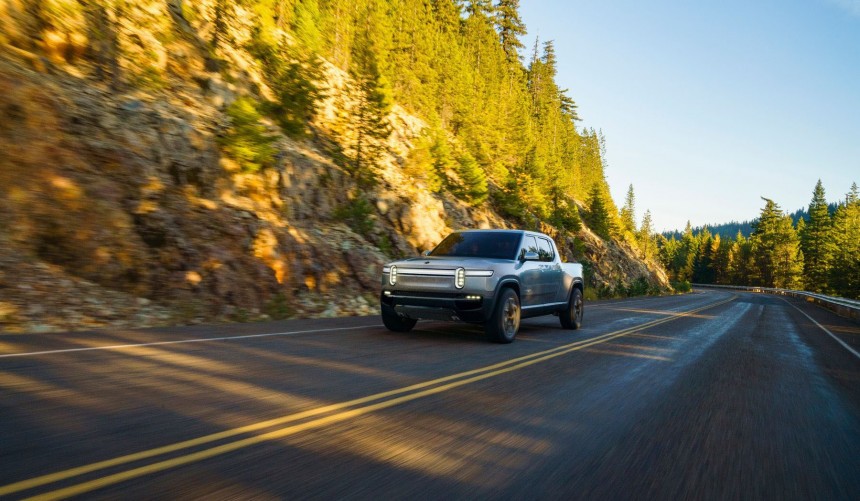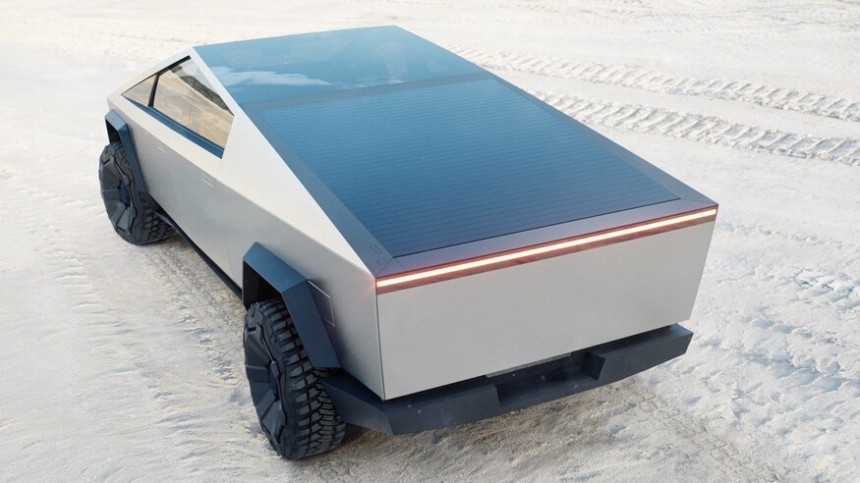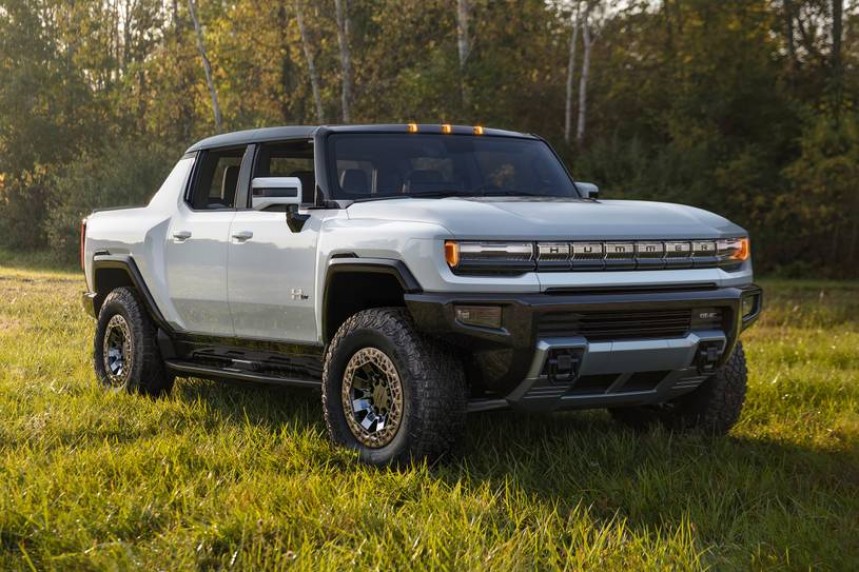There's so much to be excited about when it comes to Rivian and their current lineup of electric vehicles hitting showrooms across America right about now. There's a sense with an EV of Rivian's quality, especially their R1T pickup, that has lots of people in very well-to-do parts of America aching with anticipation.
But what about people outside of the monolithic American coastal metropolis network present at either end of these States United? Will the R1T be able to lure away Cummins, Powerstroke, and Duramax-loving rural Americans?
It should be obvious, but the buying habits of folks around these parts are different than all the city slickers pushing EVs on them, like CBD-infused wheat-grass smoothies at the Whole Foods you were unfortunate to walk into just to buy milk and eggs.
Let's take, for example, the American region commonly called Appalachia. Stretching roughly from Western New York all the way to Kentucky, this region is home to some of the heartiest, hard-working folks you're liable to find in this country. The people around there toiled in the coal mines fueling American industrial superiority for decades. That is until de-industrialization rendered most towns in this region destitute and impoverished.
Appalachia is also home to some of the harshest, coldest winters in the country and some of the saltiest roads in response to the mass accumulation of ice and snow. The result of this is that seeing an older vehicle driving around these parts without any visible rust at all is the exception rather than the norm. It's one of many barriers Appalachians face in-between themselves and viable ownership of EVs.
Premature rusty batteries and worn-out electric motors absolutely will not fly in a place where missing work due to a snowstorm might wind up getting you fired. So whether it's a Tesla, a Rivian, or heck, even a Ford or an Audi, EVs from contemporary global brands need to be able to consistently withstand the wear and tear of everyday occupational service and farm vehicle duties if it wants to sell in any significant volume in rural America.
Be it the pothole-riddled, bi-polar seasons of Western Pennsylvania, the oil fields of South Texas, a grain farm in Kansas, or a cattle and waterfowl farmer in Northern Vermont. There are simply zero excuses for shoddy, rust-prone junk in places where big cities and the high taxes therein are seen as the work of Hades. It's vital to remember that people in these places use the beds in their pickup trucks for far more than hauling surfboards and organic farmer's market groceries.
They often haul large, heavy objects with odd and abrasive shapes and sizes. We've all no doubt seen a well-used Ford or Ram pickup with a bed bearing more battle scars than a tank. The Rivian R1T absolutely must be of similar quality on a long-term basis, lest they draw the ire of their potentially most loyal customers.
But this doesn't even come close to explaining the most glaring and as yet unsolved issue with marketing electric trucks to rural Americans. It's their price. With a starting price of $67,500 for the base model RT1, there are legitimate single-family homes ready to finance in parts of Western Pennsylvania for very similar money.
To some, the answer might be as simple as working a little extra to save up to finance their favorite EV truck. But such a narrow-minded worldview only proves that some people in East and West Coast urban and even suburban parts of America really don't have the faintest clue as to how people out in the countryside actually live.
Rural Americans aren't in poverty at a higher rate than urbanites and suburbanites because they're lazy or dull-witted. They've had the rug pulled out from underneath them by the big wigs on Wall Street and Washington D.C. for decades. These people can and will work like lions with enough support and enough honest work. Works that in many parts of the country simply don't exist anymore.
The point being is this, a $67,500 electric truck serves absolutely no purpose to the ordinary blue-collar small business owner if they can't even think about affording it in any honest fashion. It doesn't matter if it's Rivian, Tesla, GMC/Hummer, or Ford selling EVs. That kind of price is unacceptable to blue-collar folks.
It might work for cruising the streets of American cities, making use of all the fast-charging stations that are also nonexistent in rural America. But if the U.S. domestic market truly wants all Americans to embrace renewable energy in their vehicles, they'll need to treat the average rural farmer with the same respect as Wall Street stockbrokers.
That means building trucks built to do the things these people need them to do most with the robust infrastructure to match. All the sub-three-second zero to 60 times and brain exploding features in the world won't make up for a failure in this aspect. People around here can and will buy Tundras and Silverados instead if you slight them.
It should be obvious, but the buying habits of folks around these parts are different than all the city slickers pushing EVs on them, like CBD-infused wheat-grass smoothies at the Whole Foods you were unfortunate to walk into just to buy milk and eggs.
Let's take, for example, the American region commonly called Appalachia. Stretching roughly from Western New York all the way to Kentucky, this region is home to some of the heartiest, hard-working folks you're liable to find in this country. The people around there toiled in the coal mines fueling American industrial superiority for decades. That is until de-industrialization rendered most towns in this region destitute and impoverished.
Appalachia is also home to some of the harshest, coldest winters in the country and some of the saltiest roads in response to the mass accumulation of ice and snow. The result of this is that seeing an older vehicle driving around these parts without any visible rust at all is the exception rather than the norm. It's one of many barriers Appalachians face in-between themselves and viable ownership of EVs.
Be it the pothole-riddled, bi-polar seasons of Western Pennsylvania, the oil fields of South Texas, a grain farm in Kansas, or a cattle and waterfowl farmer in Northern Vermont. There are simply zero excuses for shoddy, rust-prone junk in places where big cities and the high taxes therein are seen as the work of Hades. It's vital to remember that people in these places use the beds in their pickup trucks for far more than hauling surfboards and organic farmer's market groceries.
They often haul large, heavy objects with odd and abrasive shapes and sizes. We've all no doubt seen a well-used Ford or Ram pickup with a bed bearing more battle scars than a tank. The Rivian R1T absolutely must be of similar quality on a long-term basis, lest they draw the ire of their potentially most loyal customers.
But this doesn't even come close to explaining the most glaring and as yet unsolved issue with marketing electric trucks to rural Americans. It's their price. With a starting price of $67,500 for the base model RT1, there are legitimate single-family homes ready to finance in parts of Western Pennsylvania for very similar money.
Rural Americans aren't in poverty at a higher rate than urbanites and suburbanites because they're lazy or dull-witted. They've had the rug pulled out from underneath them by the big wigs on Wall Street and Washington D.C. for decades. These people can and will work like lions with enough support and enough honest work. Works that in many parts of the country simply don't exist anymore.
The point being is this, a $67,500 electric truck serves absolutely no purpose to the ordinary blue-collar small business owner if they can't even think about affording it in any honest fashion. It doesn't matter if it's Rivian, Tesla, GMC/Hummer, or Ford selling EVs. That kind of price is unacceptable to blue-collar folks.
It might work for cruising the streets of American cities, making use of all the fast-charging stations that are also nonexistent in rural America. But if the U.S. domestic market truly wants all Americans to embrace renewable energy in their vehicles, they'll need to treat the average rural farmer with the same respect as Wall Street stockbrokers.



















